
Comprehensive Guide to Turkey Farming Rearing Methods and Tips.
Turkey farming is an increasingly popular poultry business worldwide due to the high demand for turkey meat. It is a lucrative venture when proper care and management are implemented. This blog provides an in-depth guide to raising turkeys, from selecting breeds to managing housing, feeding, and disease prevention.
Why Choose Turkey Farming?
- High Demand: Turkey meat is a rich source of protein and is often consumed during festivals like Thanksgiving and Christmas.
- Profitability: Turkeys grow fast, and their meat fetches a good price in the market.
- Adaptability: Turkeys can adapt to various climates, making them suitable for farming in different regions.
- Selecting the Right Breed
The success of turkey farming largely depends on choosing the appropriate breed. Popular breeds include:
Broad-Breasted White: Known for their fast growth and high meat yield.
Broad-Breasted Bronze: A hardy breed that thrives in free-range systems.
Narragansett: Preferred for small-scale farming due to their adaptability.
Bourbon Red: A heritage breed known for its flavor.
Choose a breed based on your farming objectives, climate, and market demand.
- Housing and Shelter
Turkeys need clean, well-ventilated, and spacious housing. Here's how to set it up:
Space Requirements:
4–5 square feet per bird for indoor rearing.
10–15 square feet per bird for free-range systems.
Temperature: Maintain a brooding temperature of 95°F for poults, reducing it by 5°F weekly until they adapt.
Litter Management: Use dry and clean bedding materials like straw or wood shavings. Replace litter regularly to prevent disease.
Perches: Provide elevated perches, as turkeys prefer roosting off the ground.
Fencing: For free-range turkeys, a secure fence keeps predators out and prevents birds from wandering.
- Feeding and Nutrition
Proper nutrition is essential for turkey growth and health.
Starter Feed: High-protein feed (28–30%) is needed for poults during the first 6–8 weeks.
Grower Feed: Transition to a feed containing 20–22% protein after 8 weeks.
Finisher Feed: Use a diet with 16–18% protein for market-ready turkeys.
Supplements: Provide grit, calcium, and vitamins to improve digestion and bone health.
Water: Ensure a constant supply of clean, fresh water.
Free-range turkeys can supplement their diet by foraging for insects, seeds, and grass.
- Disease Prevention and Health Management
Keeping your turkeys healthy is crucial for a successful farm. Follow these steps:
Vaccination: Protect your birds against common diseases like fowl pox and Newcastle disease.
Biosecurity: Limit access to the farm to prevent contamination. Use foot baths and disinfect equipment regularly.
Parasite Control: Monitor for internal and external parasites. Use dewormers and sprays as needed.
Observation: Check for signs of illness like reduced appetite, lethargy, or abnormal droppings.
Isolation: Separate sick birds immediately to prevent the spread of diseases.
- Breeding and Hatching
If you want to expand your flock, breeding is essential:
Mating Ratio: Keep one tom (male) for every 8–10 hens (females).
Egg Collection: Collect eggs daily and store them at 55°F with moderate humidity.
Incubation: Turkey eggs take 28 days to hatch. Maintain an incubation temperature of 99.5°F with 55–60% humidity.
- Marketing and Profitability
Market Research: Understand local demand, pricing, and customer preferences.
Direct Sales: Sell turkeys directly to consumers, restaurants, or meat shops.
Value-Added Products: Process turkey meat into sausages, smoked products, or packaged cuts for higher profits.
- Challenges in Turkey Farming
Despite its benefits, turkey farming has challenges such as:
High initial investment in housing and feed.
Susceptibility to diseases like blackhead disease.
Proper management to avoid aggressive behavior among turkeys.
Address these challenges with adequate planning and consistent monitoring.
Final Thoughts
Turkey farming can be a rewarding venture when proper care and management are ensured. By focusing on breed selection, housing, feeding, health, and marketing, you can build a sustainable and profitable business. Start small, gain experience, and gradually expand your farm to achieve long-term success.
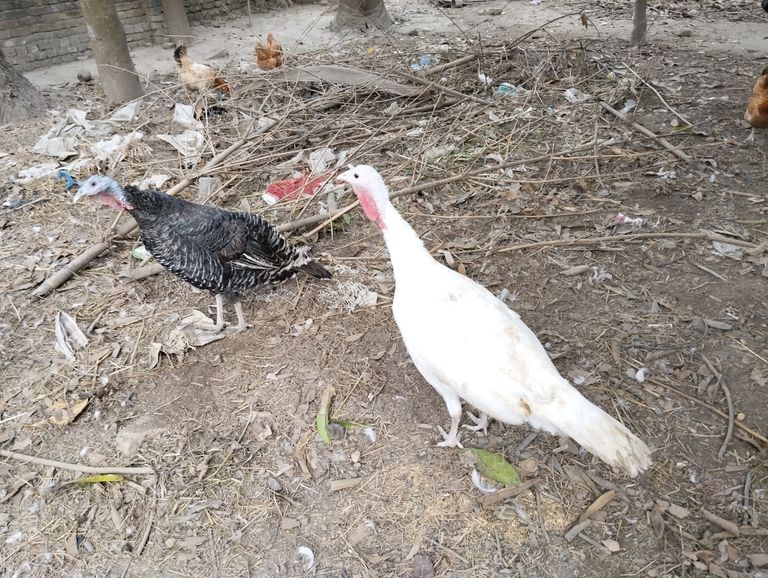
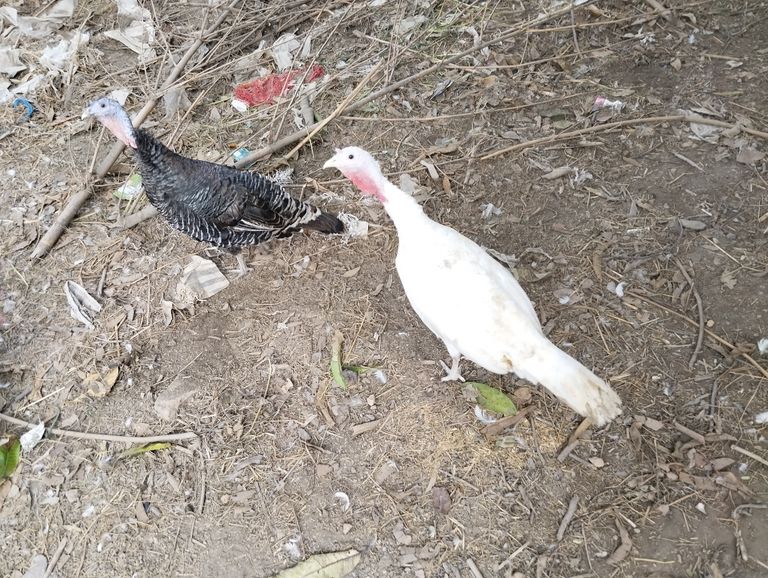
Health Benefits of Turkey Meat
Turkey meat, commonly enjoyed during festive seasons like Thanksgiving and Christmas, is much more than a holiday staple. Packed with nutrients and health benefits, it has become a popular choice among health-conscious individuals worldwide. This blog will explore the nutritional profile and the myriad benefits of including turkey in your diet.
Nutritional Value of Turkey Meat
Turkey meat is low in fat and calories while being high in protein. A 100-gram serving of cooked turkey contains:
Calories: 135
Protein: 28 grams
Fat: 1-4 grams (depending on the cut)
Carbohydrates: 0 grams
Vitamins and Minerals: Turkey is rich in B-vitamins, zinc, phosphorus, selenium, and magnesium.
Health Benefits of Turkey Meat
- Rich Source of High-Quality Protein
Turkey meat is an excellent source of lean protein, essential for muscle building, repair, and overall body function. Protein also helps in maintaining healthy skin, hair, and nails.
- Supports Weight Management
Due to its low fat and calorie content, turkey meat is an ideal choice for those looking to maintain or lose weight. The high protein content promotes satiety, reducing the urge to snack on unhealthy options.
- Boosts Immunity
Turkey is rich in zinc and selenium, two minerals critical for a robust immune system. Selenium also acts as a powerful antioxidant, protecting cells from damage.
- Improves Heart Health
White turkey meat, especially without the skin, is low in saturated fat and cholesterol, making it heart-friendly. The niacin and vitamin B6 present in turkey help regulate cholesterol levels and support cardiovascular health.
- Enhances Mood and Sleep
Turkey contains tryptophan, an amino acid that plays a vital role in serotonin production. Serotonin helps regulate mood, and its derivative melatonin aids in better sleep.
- Supports Bone Health
Turkey meat is rich in phosphorus and magnesium, essential for strong bones and teeth. Regular consumption can help prevent conditions like osteoporosis.
- Regulates Blood Sugar Levels
The high protein and low carbohydrate content in turkey meat help in stabilizing blood sugar levels, making it a suitable option for diabetics.
- Boosts Energy Levels
The B-vitamins in turkey meat, especially niacin and B12, are crucial for converting food into energy. They also support brain health and nerve function.
- Promotes Healthy Skin
The high protein content supports collagen production, while selenium contributes to maintaining skin elasticity and preventing premature aging.
- Strengthens Muscle Mass
The rich protein profile aids in muscle repair and growth, making turkey a favorite among athletes and bodybuilders.
Choosing the Right Turkey Meat
To maximize health benefits, opt for lean cuts like turkey breast and avoid processed versions such as turkey sausages or deli meats that may contain high sodium and preservatives. Look for organic or free-range turkey for added nutritional value and fewer chemicals.
Incorporating Turkey Meat into Your Diet
Here are some easy and delicious ways to include turkey in your meals:
- Turkey Salads: Combine roasted turkey with fresh greens, nuts, and a light dressing.
- Grilled Turkey Steaks: Marinate lean turkey steaks with herbs and spices, then grill them for a quick meal.
- Turkey Soups: Add turkey to your favorite vegetable or lentil soup for added protein.
- Turkey Sandwiches: Use turkey slices as a healthy alternative to processed meats.
- Turkey Stir-Fry: Sauté turkey with colorful vegetables and your choice of seasoning for a balanced meal.
Precautions
While turkey meat is highly nutritious, moderation is key. Excessive consumption can lead to high protein intake, which may strain the kidneys. Also, avoid deep-fried turkey preparations to keep calorie and fat content in check.
Turkey meat is a versatile and nutrient-dense food that offers numerous health benefits. Whether you're looking to build muscle, improve immunity, or simply enjoy a wholesome meal, turkey can be a valuable addition to your diet. Opt for lean cuts and cook them in healthy ways to make the most of this delicious and beneficial meat.
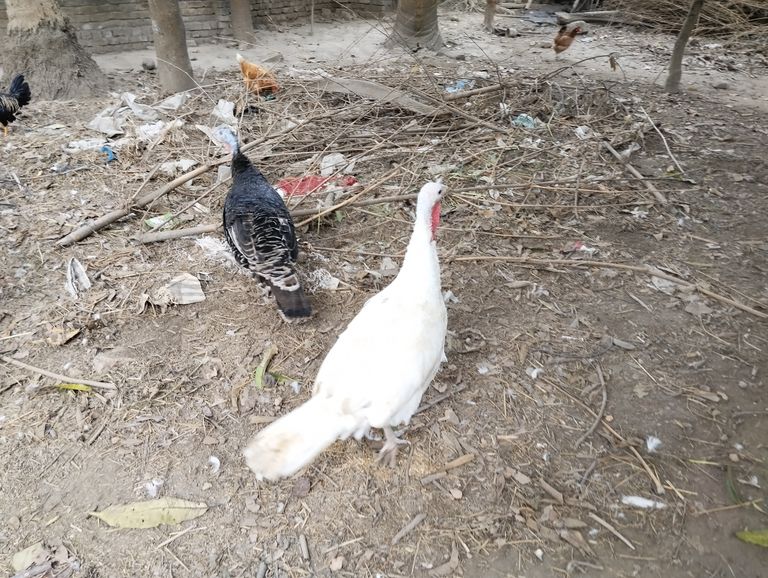
A Comprehensive Guide to Hatching Turkey Eggs Successfully
Hatching turkey eggs can be a rewarding process for poultry enthusiasts. With proper care and attention to detail, you can ensure healthy turkey poults from your eggs. This guide provides step-by-step instructions on how to hatch turkey eggs, covering everything from egg selection to caring for newly hatched chicks.
Step 1: Selecting Fertile Turkey Eggs
The first step to successful hatching is choosing high-quality fertile eggs.
- Source from Healthy Breeding Stock: Ensure the parent birds are healthy, well-fed, and free from diseases.
- Check Fertility: Fertile eggs are essential for hatching. A fertility test or candling can help determine viability.
- Optimal Size and Shape: Choose medium-sized eggs with no visible cracks, deformities, or thin shells.
Step 2: Storing and Handling Eggs Before Incubation
Proper handling before incubation ensures better hatchability.
- Temperature: Store the eggs at 55°F–60°F (13°C–16°C) in a cool, dry place.
- Humidity: Maintain 70%-75% humidity to prevent dehydration of the eggs.
- Positioning: Store the eggs with the pointed end facing downward and turn them gently at least once daily to prevent the yolk from sticking.
- Incubate Within 7 Days: Eggs stored for more than 7 days may have reduced hatch rates.
Step 3: Setting Up the Incubator
An incubator is crucial for maintaining the right conditions for hatching.
- Temperature: Maintain a steady temperature of 99.5°F (37.5°C) for forced-air incubators and 101°F (38.3°C) for still-air incubators.
- Humidity: Keep humidity levels at 50%-55% during the first 25 days of incubation.
- Ventilation: Ensure proper air circulation inside the incubator to provide oxygen to the embryos.
- Turn the Eggs: Turn the eggs 3–5 times daily to prevent the embryo from sticking to the shell. Stop turning 3 days before hatching (day 25).
Step 4: The Incubation Process
Turkey eggs take approximately 28 days to hatch.
- Monitor Regularly: Use a thermometer and hygrometer to monitor temperature and humidity.
- Candling: Perform candling on days 7, 14, and 21 to check the development of embryos. Discard any unfertilized or dead eggs.
- Increase Humidity During Hatching: Raise humidity to 65%-70% during the last 3 days to help the chicks break through the shell.
Step 5: Hatching and Post-Hatch Care
When the eggs begin to hatch, follow these steps to ensure the poults’ safety.
- Avoid Opening the Incubator: Keep the incubator closed to maintain temperature and humidity levels.
- Allow Natural Hatching: Let the chicks break through the shell on their own. It may take up to 24 hours.
- Move Chicks to a Brooder: Once they are dry and fluffy, transfer the poults to a brooder with a temperature of 95°F (35°C).
Brooder Setup for Turkey Poults
- Temperature: Gradually reduce the temperature by 5°F each week until it reaches room temperature.
- Bedding: Use clean, dry bedding like wood shavings or straw. Avoid slippery surfaces to prevent leg issues.
- Food and Water: Provide a balanced starter feed and fresh water. Use a shallow water dish to prevent drowning.
Common Challenges and Tips
Infertile Eggs: Regular candling helps identify and remove infertile eggs.
Temperature Fluctuations: Use a reliable incubator and place it in a stable environment.
Weak Chicks: Provide extra care and ensure they are warm, hydrated, and fed properly.
Hatching turkey eggs requires patience and attention to detail, but the rewards are worth the effort. By following this guide, you can increase your chances of successfully raising healthy turkey poults.
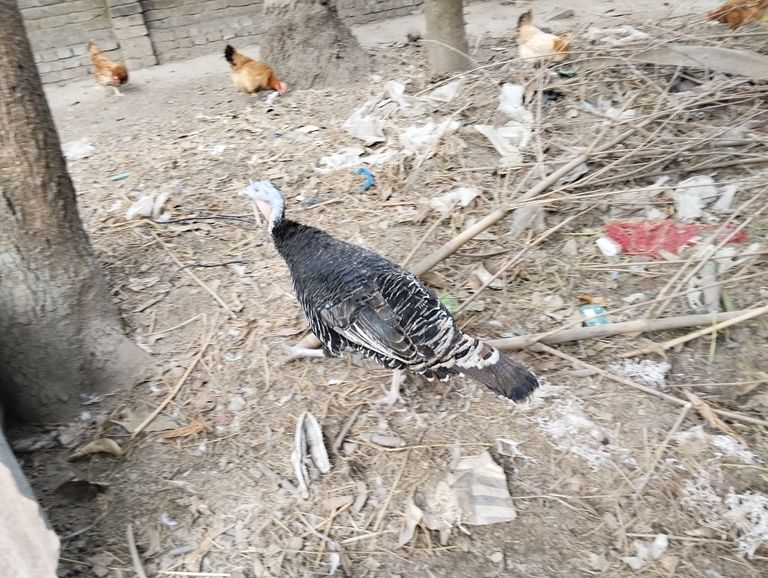
When Do Turkey Hens Start Laying Eggs?
Turkey farming has gained popularity worldwide, not only for meat production but also for egg production. Many poultry farmers and enthusiasts often ask: At what age do turkey hens start laying eggs? This article explores the factors influencing egg-laying age, the typical timeline, and tips for optimizing egg production.
Typical Egg-Laying Age of Turkey Hens
On average, turkey hens begin laying eggs between 28 to 32 weeks of age, which is around 7 to 8 months. However, the exact age may vary depending on several factors, such as the breed of the turkey, its diet, environmental conditions, and overall health.
Factors Influencing Egg-Laying Age
- Breed of Turkey
Different turkey breeds have varying maturity rates. For example, heritage breeds like the Narragansett or Bourbon Red may take slightly longer to reach egg-laying age compared to commercial breeds like the Broad Breasted White.
- Nutrition
Proper nutrition plays a crucial role in determining when a turkey hen starts laying eggs. A balanced diet with adequate protein, calcium, and vitamins ensures early and consistent egg production.
- Environmental Conditions
Lighting: Adequate light exposure is essential for stimulating the reproductive cycle. Typically, turkey hens require 14-16 hours of light daily to start laying eggs.
Housing: Stress-free, clean, and spacious housing encourages early maturity and healthy laying cycles.
- Health and Care
Disease-free and well-maintained turkeys are more likely to start laying eggs on time. Regular health check-ups, vaccinations, and parasite control are critical.
Egg Production Cycle
Once turkey hens start laying, they produce around 90-120 eggs per year, depending on their breed and management. Most hens lay eggs consistently for about 6-7 months, followed by a molting period, during which egg production slows or stops temporarily.
Tips for Optimizing Turkey Egg Production
- Provide High-Quality Feed
Include commercial layer feed or a mix of grains, protein sources, and calcium supplements to support healthy egg production.
- Maintain Optimal Lighting
Use artificial lighting during shorter days to ensure hens receive 14-16 hours of light daily.
- Ensure Stress-Free Environment
Avoid overcrowding, protect the birds from predators, and reduce noise levels to keep turkeys stress-free.
- Regular Monitoring and Health Care
Monitor the turkeys for signs of illness, such as reduced appetite or abnormal behavior. Consult a veterinarian if needed.
- Breeding for Better Results
If you plan to increase egg production, consider selecting hens from high-yielding lines. Breeding healthy and productive birds will improve egg output in the next generation.
Turkey hens typically start laying eggs around 7 to 8 months of age, but this depends on various factors like breed, nutrition, and environment. By providing proper care, optimal lighting, and a balanced diet, you can ensure healthy and consistent egg production. Whether you’re raising turkeys for eggs or meat, understanding their laying cycle is essential for successful poultry farming.
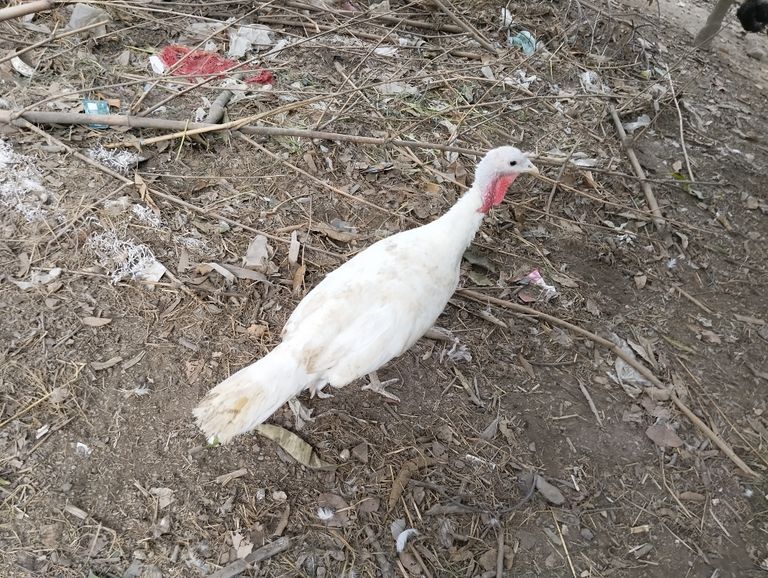
A Complete Guide to Feeding Turkey Birds: Essential Diet and Nutritional Tips
Raising turkeys, whether for commercial farming or backyard rearing, requires a thorough understanding of their dietary needs. Proper nutrition is the cornerstone of their health, growth, and productivity. This guide explores the essential aspects of feeding turkeys, covering their diet, nutritional requirements, and practical feeding strategies.
- Nutritional Needs of Turkeys
Turkeys, like other poultry, need a balanced diet rich in protein, energy, vitamins, and minerals. However, their dietary requirements differ from chickens due to their larger size and faster growth rate.
Protein: Turkeys require a high-protein diet, especially during the early stages of growth. Protein is essential for muscle development and overall growth.
Starter feeds: 28–30% protein
Grower feeds: 22–26% protein
Finisher feeds: 18–20% protein
Energy: Carbohydrates and fats provide the necessary energy for daily activities and growth. Grains like corn, wheat, and barley are excellent sources of energy.
Vitamins and Minerals: Vitamins A, D, E, and B-complex, along with minerals like calcium, phosphorus, and sodium, are vital for bone health, feathering, and immune function.
- Types of Turkey Feed
Turkeys are fed different types of feed depending on their age and purpose (meat production or breeding).
Starter Feed: Given during the first 6–8 weeks, this feed is high in protein and energy to support rapid growth.
Grower Feed: After 8 weeks, turkeys transition to grower feed, which has slightly less protein but more energy for sustained growth.
Finisher Feed: For meat production, finisher feed is introduced 16 weeks onwards, ensuring proper weight gain and muscle development.
Breeder Feed: For breeding turkeys, specialized feed with optimal calcium and phosphorus levels is provided to support egg production.
- Common Feed Ingredients
Turkey feed comprises a mix of grains, proteins, and supplements to ensure a well-rounded diet.
Grains: Corn, wheat, barley, and sorghum serve as primary energy sources.
Protein Sources: Soybean meal, fishmeal, and meat scraps are rich in protein.
Green Feeds: Vegetables, grass clippings, and alfalfa provide additional vitamins and fiber.
Supplements: Pre-mixed vitamins and mineral additives ensure turkeys get all essential nutrients.